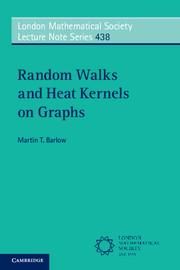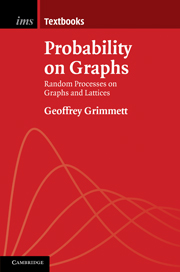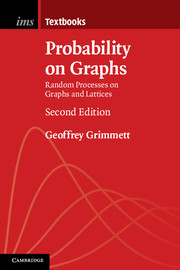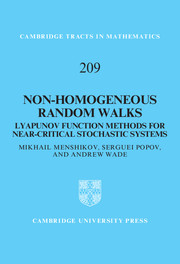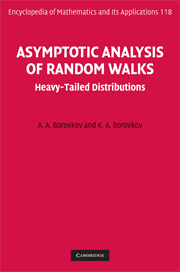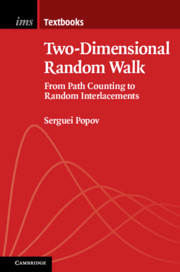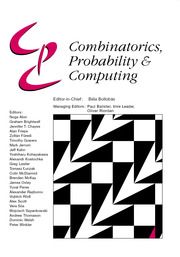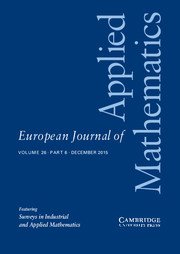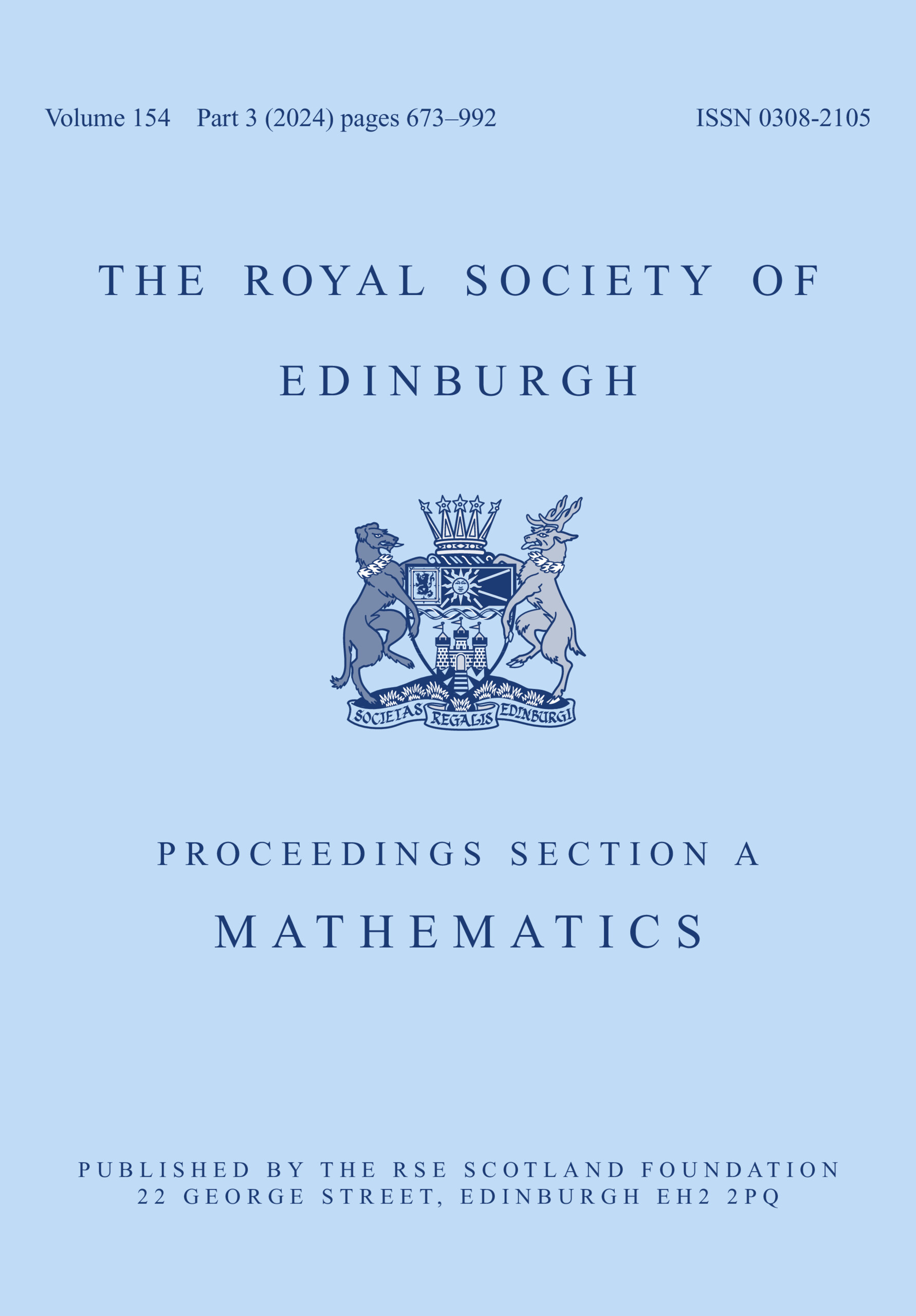Random Walks and Heat Kernels on Graphs
$75.99 (C)
Part of London Mathematical Society Lecture Note Series
- Author: Martin T. Barlow, University of British Columbia, Vancouver
- Date Published: April 2017
- availability: Available
- format: Paperback
- isbn: 9781107674424
$
75.99
(C)
Paperback
Other available formats:
eBook
Looking for an examination copy?
If you are interested in the title for your course we can consider offering an examination copy. To register your interest please contact [email protected] providing details of the course you are teaching.
-
This introduction to random walks on infinite graphs gives particular emphasis to graphs with polynomial volume growth. It offers an overview of analytic methods, starting with the connection between random walks and electrical resistance, and then proceeding to study the use of isoperimetric and Poincaré inequalities. The book presents rough isometries and looks at the properties of a graph that are stable under these transformations. Applications include the 'type problem': determining whether a graph is transient or recurrent. The final chapters show how geometric properties of the graph can be used to establish heat kernel bounds, that is, bounds on the transition probabilities of the random walk, and it is proved that Gaussian bounds hold for graphs that are roughly isometric to Euclidean space. Aimed at graduate students in mathematics, the book is also useful for researchers as a reference for results that are hard to find elsewhere.
Read more- Connects geometry and probability, showing how geometric properties of the graph can be used to estimate the heat kernel
- Introduces important analytic inequalities in the graph context
- Written by a leading researcher who has made significant contributions to this area of study
Reviews & endorsements
'This book, written with great care, is a comprehensive course on random walks on graphs, with a focus on the relation between rough geometric properties of the underlying graph and the asymptotic behavior of the random walk on it. It is accessible to graduate students but may also serve as a good reference for researchers. It contains the usual material about random walks on graphs and its connections to discrete potential theory and electrical resistance (Chapters 1, 2 and 3). The heart of the book is then devoted to the study of the heat kernel (Chapters 4, 5 and 6). The author develops sufficient conditions under which sub-Gaussian or Gaussian bounds for the heat kernel hold (both on-diagonal and off diagonal; both upper and lower bounds).' Nicolas Curien, Mathematical Review
See more reviews'The book under review delineates very thoroughly the general theory of random walks on weighted graphs. The author’s expertise in both probability and analysis is apparent in the exposition and the elegant proofs depicted in the book.' Eviatar B. Procaccia, Bulletin of the American Mathematical Society
Customer reviews
Not yet reviewed
Be the first to review
Review was not posted due to profanity
×Product details
- Date Published: April 2017
- format: Paperback
- isbn: 9781107674424
- length: 236 pages
- dimensions: 226 x 152 x 15 mm
- weight: 0.35kg
- contains: 5 b/w illus. 8 exercises
- availability: Available
Table of Contents
Preface
1. Introduction
2. Random walks and electrical resistance
3. Isoperimetric inequalities and applications
4. Discrete time heat kernel
5. Continuous time random walks
6. Heat kernel bounds
7. Potential theory and Harnack inequalities
Appendix A
References
Index.
Sorry, this resource is locked
Please register or sign in to request access. If you are having problems accessing these resources please email [email protected]
Register Sign in» Proceed
You are now leaving the Cambridge University Press website. Your eBook purchase and download will be completed by our partner www.ebooks.com. Please see the permission section of the www.ebooks.com catalogue page for details of the print & copy limits on our eBooks.
Continue ×Are you sure you want to delete your account?
This cannot be undone.
Thank you for your feedback which will help us improve our service.
If you requested a response, we will make sure to get back to you shortly.
×
